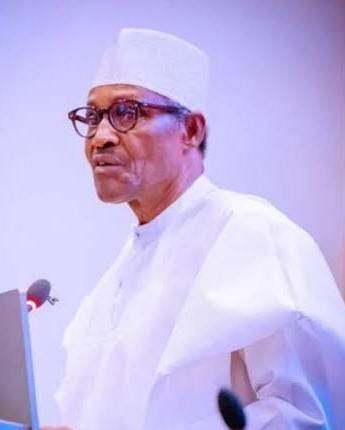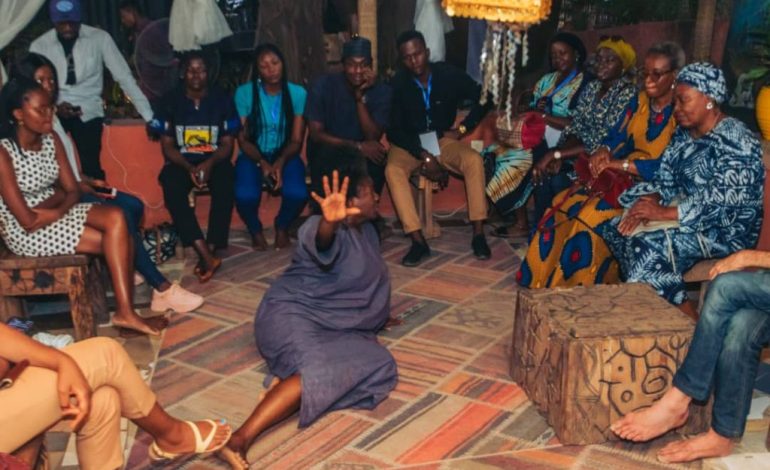Festivals: How philistinism, pettiness rob culture sector of robust platforms for artistic exhibitions


Stakeholders should pressurise govt to set up Endowment Fund for the Arts
Rivers, Lagos, Niger, Ogun culture festivals victims of political pettiness, philistinism
Politicians deemphasize investments in culture sector because they consider festivals as jamborees
By Anote Ajeluorou
GOVERNMENTS elsewhere, particularly local councils and states, play a big role in the organisation of festivals that give their domains distinctive character, flavour and colour. They may not directly organise these festivals, but the support they give provides the life-wire for the sustenance and longevity of these festivals that in turn help to boost local tourism and empowerment of artists of various hues who have a chance to exhibit their crafts. But this seems to be the exact opposite in Nigeria where the few festivals state governments have sponsored so far died with the tenure of governments or governors in power. And as soon as they leave, the incoming administration distanced itself from the programmes and projects of the past administration, with festivals as first and major casualties.
From Garden City Book Festival that was rechristened Port Harcourt Book Festival, organised by Rainbow Book Club, with the active support of Rivers State Government under Governor Rotimi Amaechi, to Lagos (Black) Heritage Festival under Governor Babatunde Raji Fashola, International Drum Festival held in Abeokuta under the Ibikunle Amosun-led government in Ogun State, and Mu’azu Babagida Aliyu Festival Colloquium (MBA Festival Colloquium for short) in Niger State under Governor Mu’azu Babagida Aliyu; these festivals died shortly after their governor-initiators left office. Meanwhile, the yearly Convention of the Association of Nigerian Authors (ANA), Lagos Book and Art Festival (LABAF), Jos Repertoire Theatre Festival, Eko Film Festival, Ake Arts and Book Festival, MUSON Festival, Benue Book and Arts Festival, Makurdi, Lagos International Poetry Festival (LIPF), Lagos Theatre Festival (LTF), Lagos and Abuja Fringe Festivals, Beeta Arts Festival (BAF), Abuja, Abuja International Film Festival (AIFF), i-Rep Documentary Film Festival, Abuja Literary and Arts Festival, Quramo Festival of Words (QFest), Lagos International Festival of Animation, and a host of other privately initiated platforms are the ones truly animating Nigeria’s culture sector while states wait for the one-off National Festival of Arts (NAFEST) to engage government employee-artists in their domains.
Perhaps, the man who currently treats cultural offerings with a decided philistinic attitude is President Muhammadu Buhari. He failed to continue Bring Back the Book (BBtB), a federal government-sponsored reading culture promotion project that his predecessor Dr. Goodluck Ebele Jonathan insitituted to promote books and reading in the country. American Presidential system that Nigeria wrongly copied regularly allows its president go to public schools to read to pupils and students. When 9/11 bombing happened, President George Bush Jr was performing such exercise. Jonathan was the only president to not only set up a book reading structure, he personally drove it. But it died under Mr. Buhari wh did not initiate any as replacement. The National Council for Arts and Cultue (NCAC) may have been organising the National Festival of Arts (NAFEST) yearly, but has President Buhari ever visited the festival ground even when Abuja is its host city?

Interestingly, these abandoned festivals once provided huge cultural destination points for artists, visitors and other creatives, who found them fertile grounds to showcase their talents. Culture lovers who trouped to these festivals enjoyed the bumper offerings and journalists had a field day reporting them to a global audience. But just as they emerged, so also did they peter out one after the other as soon as the governors that founded or supported them left office.
Interestingly, Calabar Carnival boasts of the longest lifespan since it has survived different administrations till date. From Governor Donald Duke who initiated it through Governor Liyel Imoke and now Governor Ben Ayade, Calabar Carnival is still going strong apart from the tragic accident that claimed five lives this year. Calabar Carnival had a two-year break due to Covid-19 and its spill over last year, but it came on stream this year. Kaduna Book and Art Festival (KABAFEST) started in 2017 and also had a two-year hiatus due to Covid-19. But whether it will join in suffering similar fate as Port Harcourt Book Festival, International Drum Festival, Ogun, Lagos (Black) Heritage Festival, and MBA Festival Colloquium will have the verdict out when Malam Nasir El-rufai leaves office as governor of Kaduna state on May 29, 2023. Governor Aliyu’s successor in Niger State, Governor Abubakar Sani Bello, let MBA Festival Colloquium die. Not even Niger State Book Development Agency, a structure Governor Aliyu designed to ensure the continuity of MBA Festival Colloquium, survived. Also Gabriel Okara Literary Festival, organised by the University of Port Harcourt, Rivers State, held only one edition before it also caved in and disappeared altogether.
While political acrimony and change of party in power like the case between Governor Nyesom Wike and his predecessor Amaechi is often cited as reason for lack of continuity in programmes and projects of past administrations, Lagos and Ogun states present different scenarios. The same party has been in power in these two states from Fashola through Akinwunmi Ambode and now Babajide Sanwo-Olu as is case with Amosun to Dapo Abiodun in Ogun state, although there has been no love lost between Amosun and Abiodun in the succession process. However, an innocent project like the International Drum Festival fell victim of these men’s power games to rob the citizenry of the benefits the festival offered residents and visitors alike.
Governor Aliyu’s successor in Niger State didn’t make any pretence about continuing the colloquium. A former director of the Book Development Agency, Mr. BM Dzukogi, would later reincarnate it as an independent platform for youngsters to showcase their talents in the form of Hilltop Creative Arts Foundation. While Ambode did a lot for the arts sector in Lagos by building six theatres spread across the state and initiated the JK Randle Museum for Yoruba Culture at Onikan, he didn’t look the way of Lagos Black Heritage Festival to continue it in spite of the obvious traction it had begun to gain in bringing international performers and tourists to the state.
Clearly, there has been no continuity in these states that managed to start these cultural fiestas. One significant defect was that these critical festivals were not built into the policy structure of the respective ministries of arts and culture of these states and across other state in the country. This made them easy prey for the new governors to yank them off entirely, some out of spite while others might have been motivated by certain philistine tendencies that abhor culture entirely. Why festivals are not structurally embedded in states across the federation show just the philistinism mindset around governance in the country. Local government councils ought to have festivals built in their structures to showcase the respective rich cultures that abound among Nigeria’s ethnic nationalities. Only last month, New York state in America hiked the budget for the state-owned three library systems with USD$20 million from USD$431.9 million to USD$452.8 million!

In the fields of philosophy and aesthetics, the term philistinism describes the attitudes, habits, and characteristics of a person who deprecates art and beauty, spirituality and intellect. As a derogatory term, philistine describes a person who is narrow-minded and hostile to life of the mind, whose materialistic worldview and tastes indicate an indifference to cultural and aesthetic values. Does Governors Wike, Bello and Abiodun of Rivers, Niger Ogun states fall into this special philistine category in killing off the cultural festivals they met in their respective states? The verdict seems obvious, since they didn’t make efforts to reinvent the festivals they met or establish any that appealed to them if only expressing a pretence with the gesture.
However, Sanwo-Olu only just marginally escaped the damning philistinic tag when his wife’s office collaborated with the Ministry of Tourism, Arts and Culture to orgainse ‘The Greater Lagos Art Exhibition’ on December 13, 2022. But for a vast city like Lagos reputed for its army of talented artists of various shades, that one-day exhibition would seem like mere tokenism. At least, that exhibition should have lasted a week for its full potential to be realised. Perhaps, the greater urgency now is for Sanwo-Olu to return Lagos (Black) Heritage Festival to centre-stage in the Aquatic City on the Lagoon! That’s about the only way he would totally escape the tag of a philistine. With the six theatres in place, together with the JK Randle Museum of Yoruba Culture and Freedom Park, Lagos is now better equipped to organise a festival of global standing like Lagos (Black) Heritage Festival, which it did even when the state didn’t have these purpose-built culture structures. Festival Consultant of Nobel Prize in Literature repute, Prof. Wole Soyinka would gladly welcome the return of the festival he popularise to the global community to visit Lagos.
In all of these, what exactly was lacking for these festivals to suffer the sorry fates of abandonment? Should there have been legislative action by the respective founding governor? Should bills through legislative processes bythe Houses of Assembly have been initiated and passed into Acts of parliament, so these festivals become legal entities that do not suffer needless hiccups in the hands of maverick politicians? If these politicians do fall into the plank of philistinism, perhaps they should have modified what they met or introduce something new as replacements for the festivals they jettisoned.

Writer, director in the Ministry of Culture and co-organiser of National Arts Festival (NAFEST), Mallam Denja Abdullahi noted that what usually accounted for the lack of continuity in such state sponsored festival is “Lack of institutionalization and undue personalisation of the structures behind those festivals (that) cause their deaths. Festivals endure when institutions beyond government patronage drive them,” adding that not continuing such projects has implications: “The loss is huge but a lot of privately-driven festivals have sprung up which are run through private partnerships, crowd funding and sheer voluntaristic determinism,” which might as well be the future for festivals in the face of hostile governments.
Even institutionalisation being canvased is not often enough with Niger State as a case in point, as Abdullahi also acknowledged, “A clear case of what kills a festival tied to the tenure of office of a governor is what happened to the Port Harcourt Book Festival. It was heavily personalized and tied around the then governor of Rivers State, Rotimi Ameachi, who was literary friendly. Of course, we all know that the festival would not survive the philistinism of a governor like Nyesom Wike and the acrimony between both men also contributed. Another case in point is that of MBA Festival Colloquium tied around the then governor of Niger State, Mu’azu Babangida Aliyu, which went comatose after he left. Even the seeming structure of the Niger State Book Development Agency created to house and institutionalize the festival did not survive the different agenda and ego of the government (Goveror Bello) that came after. That is Nigeria for you; governance is heavily personalized and without any long range planning to the extent that a successor hardly wants to retain the good initiatives of a predecessor.”
Abdullahi then proposed a workable template for the continuity of festivals even as he advanced possible reasons why states and the federal government are not forthcoming in supporting the different local festivals that are animating the culture sector: “Literary and other kinds of artistic festivals survive if tied to institutions with allied concerns and with regular budgetary allocations. Literary festivals tied to educational institutions such as universities and the likes hardly die, because those institutions place the right priority to those festivals and would always give them the atmosphere to thrive. (Gabriel Okara Literary Festival in Port Harcourt proved exception to this rule though)

“They (states and federal governments) are not (supporting festivals) because there are no structures or laws backing such supports. There should be something like a National Endowment Fund for the Arts in which public funds are pooled into from which independent festivals can access grants to support their works and activities. That is how it is done in Europe and America. Federal and state governments will not go out of their ways to support festivals without such institutionalization of support structures. Private and corporate foundations can also key into such an endowment fund to support festivals and the arts generally.”
But then whose responsibility is it to lead the charge to establish the long-awaited National Endowment for the Arts? Abdullahi’s informed response as an establishment man is not exactly new, but it gives impetus for culture stakeholders and independent practitioners to renew efforts at pressurizing government to enact the elusive Endowment Fund for the Arts law: “It is the duty of the state to set up an Endowment Fund for the Arts. But the artistic community has to pressurize the government to do that if government is found of dereliction of duty in that respect. Remember, the Military Government of Nigeria promulgated such an endowment fund decree in 1988 or thereabout, which never took effect for one reason or the other. Now we are in a democracy and such a bill can come into being via the executive or sponsored by the National Assembly and passed into law.”
For Prof. Amanze Akpuda of Abia State University, Uturu, said, “Successor governments in Nigeria do not usually buy into memorable projects inaugurated by their predecessors mainly because the drivers of the new regimes imagine that such sustenance would eclipse their political profiles,” and that the loss arising from the stoppage of these festivals “is unquantifiable.” As a way out, he said that “The initiators of such festivals should find ways to partner with informed culture activists, visionary executives in the private sector, and also liaise with donor agencies that are arts-friendly to ensure that the administration of festivals is coordinated in a manner that promotes continuity.”

In the minds of the average politician, culture is synonymous with scantily clad maidens shaking their butts at them at functions. For them therefore, culture is a jamboree not worth investing on. To change such philistinic mindset about what culture entails and asking for investment in it in the form of festival sponsorship would always be an uphill task, a reality that prompted Akpuda to then argue that “There is a tendency among the uninformed (politicians) to deemphasize investments in the cultural sector because many consider festivals as jamborees. Many governments focus on programmes that they imagine could easily bring back the investments made on them.”
However, poet and founder of Ibadan Poetry Enclave, Ebika Anthony said, “Lack of foresight, poor knowledge about the developmental and progressive gains of our cultural festivals and the wicked mindset of greed, religious intolerance and hatred for political opposition” are responsible for what happened to the enumerated festivals, adding that society generally suffered from the ensuing loss in governments lacking vision when they repudiate the offerings of culture that are showcased at festivals: “The artist designs before the scientist begins to construct. So when government repudiates and suffers the culture sector, there will be no meaningful development in the society,” as the source of creativity would have been stifled.
And for workable templates that should be in place to ensure the continuity of such festivals, Anthony said square pegs in round holes in the form of culture administrators in government is a possible reason, and advised government to, “Put respected culture activists, art directors and administrators with adequate knowledge in charge of cultural positions,” and noting also why governments – states and federal – do not support independently organised festivals is, “Because they will not be able to pad or doctor expenditures and steal huge funds,” an obvious huge disincentive with the unfortunate consequence that culture will continue to suffer a drought in funding while irrelevant projects and programmes get generous sponsorship attention.



